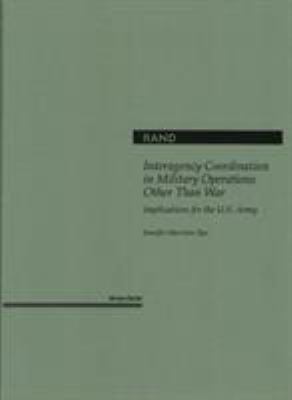
Book
|
Interagency coordination in military operations other than war : implications for the U.S. Army
Copies
1 Total copies, 1 Copies are in,
0 Copies are out.
Title
Interagency coordination in military operations other than war : implications for the U.S. Army
Call No
UA25
Digital Link
Authors
Language
English
Published
Santa Monica, CA : RAND, 1997.
Publication Desc
xvii, 52 p. ;
ISBN
083302499X
(alk. paper)
LCCN
97011376
Dimensions
28 cm.









